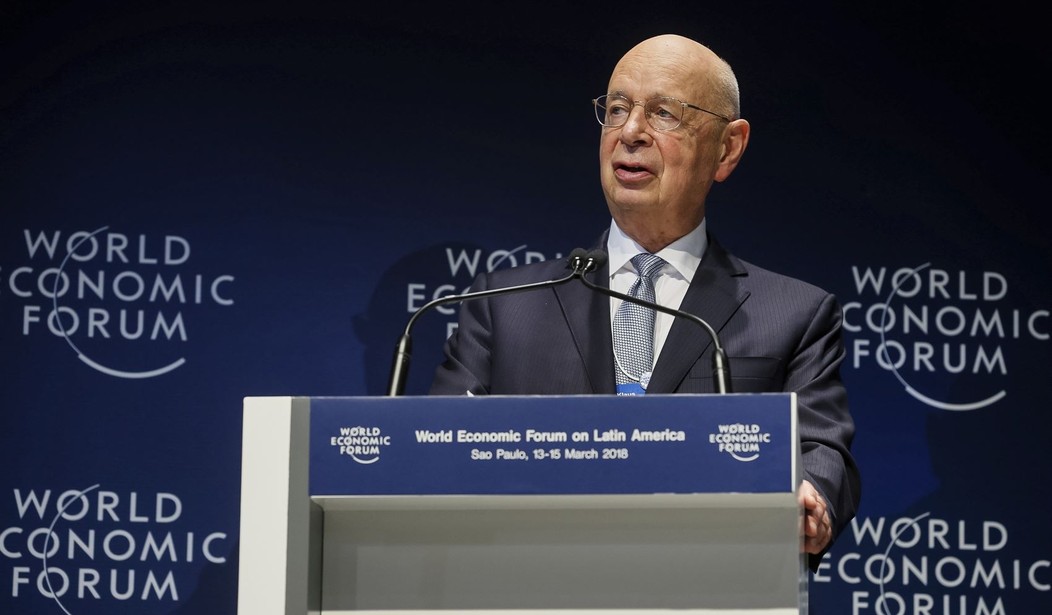During the 2008 Great Recession, Rahm Emanuel—President Obama’s chief of staff— infamously said, “You never want a serious crisis to go to waste. And what I mean by that is [it’s] an opportunity to do things that you think you could not do before.”
Twelve years later, World Economic Forum Founder and Executive Chairman Klaus Schwab is attempting to use the coronavirus crisis as an “opportunity” to do a series of things that were unthinkable, and virtually impossible, just a few months ago.
Allow me to introduce you to the World Economic Forum’s (WEF) Great Reset. Better yet, let’s explore what Schwab’s so-called Great Reset entails, in his own words.
Like Emanuel pointed out in his notorious quip, far-reaching changes (that you think you could not do before) are much easier to achieve in the midst of a crisis.
In a piece titled, “Now Is the Time for a ‘Great Reset,’” Schwab begins:
“COVID-19 lockdowns may be gradually easing, but anxiety about the world’s social and economic prospects is only intensifying. There is good reason to worry: a sharp economic downturn has already begun, and we could be facing the worst depression since the 1930s. But, while this outcome is likely, it is not unavoidable.”
So, according to Schwab, we are on the precipice of a worldwide economic disaster. Serious crisis? You bet.
Schwab proceeds to explain, “To achieve a better outcome, the world must act jointly and swiftly to revamp all aspects of our societies and economies, from education to social contracts and working conditions. Every country, from the United States to China, must participate, and every industry, from oil and gas to tech, must be transformed. In short, we need a ‘Great Reset’ of capitalism.”
Recommended
Wait, what? Why does the coronavirus pandemic necessitate a global economic and social transformation of this size and scope? And how would transforming “every industry, from oil and gas to tech,” help combat COVID-19? Short answer: It would not.
And for a bit more hyperbole, Schwab smugly writes, “Left unaddressed, these crises, together with COVID-19, will deepen and leave the world even less sustainable, less equal and more fragile. Incremental measures and ad hoc fixes will not suffice to prevent this scenario. We must build entirely new foundations for our economic and social systems.” Apparently, Schwab and his WEF cronies do not lack sanctimony or pompousness.
Now, putting aside Schwab’s pretensions, what is the Great Reset? According to Schwab, “The Great Reset agenda would have three main components. The first would steer the market toward fairer outcomes. … Moreover, governments should implement long-overdue reforms that promote more equitable outcomes. Depending on the country, these may include changes to wealth taxes, the withdrawal of fossil-fuel subsidies, and new rules governing intellectual property, trade, and competition.”
Once again, what does anything mentioned above have to do with fighting COVID-19?
“The second component of a Great Reset agenda would ensure that investments advance shared goals, such as equality and sustainability,” Schwab explains. “Here, the large-scale spending programs that many governments are implementing represent a major opportunity for progress. … Rather than using these funds, as well as investments from private entities and pension funds, to fill cracks in the old system, we should use them to create a new one that is more resilient, equitable and sustainable in the long run. This means, for example, building ‘green’ urban infrastructure and creating incentives for industries to improve their track record on environmental, social and governance (ESG) metrics.”
Not to be a one-note-Johnny, but this also has nothing to do with addressing the coronavirus crisis.
“The third and final priority of a Great Reset agenda is to harness the innovations of the Fourth Industrial Revolution to support the public good, especially by addressing health and social challenges. During the COVID-19 crisis, companies, universities and others have joined forces to develop diagnostics, therapeutics and possible vaccines; establish testing centers; create mechanisms for tracing infections; and deliver telemedicine. Imagine what could be possible if similar concerted efforts were made in every sector.”
Well, at least some of this is connected to COVID-19. However, I suspect that Schwab is most interested in the last sentence of the paragraph above.
Perhaps the final sentence of Schwab’s piece is the most telling: “The pandemic represents a rare but narrow window of opportunity to reflect, reimagine, and reset our world to create a healthier, more equitable and more prosperous future.” And there is the Great Reset, in a nutshell.
Maybe a more accurate title for WEF’s pet project would be: The Great Trojan Horse.
Chris Talgo (ctalgo@heartland.org) is an editor at The Heartland Institute.

























Join the conversation as a VIP Member